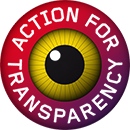What we do
We empower citizens and government employees to act on corruption experienced in their everyday lives. Using a mobile phone with Internet access, anyone is able to check the amount of government money pledged to each school and health clinic – and the amount actually spent. By exposing which institutions and individuals are involved in corruption and providing the data to journalists and activist groups, we hope we can make corruption less attractive.
Why we do What we do
Corruption is an ingrained behaviour – this must be taken into consideration. In order to change this attitude, we need to cooperate with civil society, media, government and the international community. Government should be an active partner from the very start, just as the community. Focus in the community should be on citizen monitoring, using wiki solutions, rather than relying too much on whistle blowing.
How you can Participate
Citizen participation in governance and development processes is based on the constitutional foundation which places sovereign power on the people of Kenya. It is this power that has been delegated to state actors at the national and county levels. This sovereignty must be respected and institutionalised in all processes of governance including in the Education and Health sectors. Public participation is also one of the national values and principles of governance stipulated in article 10 for which we all have a duty to promote and exercise as patriotic citizens.
Background and History
Action for Transparency (A4T) is a pioneering project that fights corruption and mismanagement of government funds by putting the power to change in the hands of citizens. The A4T project was first implemented in Uganda and Zambia before being transferred to Kenya in May 2015.
In Kenya, the project was first implemented in Embakasi Sub-County alone as a pilot, before being expanded to cover the entire Nairobi County. Currently, the project is operating in 11 other counties among them (Baringo, Homabay, Isiolo, Kakamega, Kiambu, Kisumu, Makueni, Meru, Siaya, Uasin Gishu, Wajir) with the support of local partner organisations, through funding from URAIA – DANIDA.
Project Partners
- Embassy of Sweden
- Fojo Media Institute
- Transparency International - Kenya
- Konrad-Adenauer-Stiftung
- The Institute for Social Accountability
- European Union
Swedish development cooperation helps reduce poverty in the world. Our support contributes to economic and political development in poor countries. This strengthens their democracy and creates conditions for people to lift themselves out of poverty. The objective of Swedish development cooperation is to create opportunities for people living in poverty and under oppression to improve their living conditions. Everyone living in Sweden and paying taxes is contributing to this. The government decides how much money is allocated to development in the annual budget. It has long been about one per cent of Sweden’s GDP. The Swedish state authority for development cooperation, Sida, has the power to decide about a half of the Swedish aid budget and is subject to the Swedish Ministry for Foreign Affairs.
Fojo Media Institute is Sweden’s leading development centre for professional journalists, and now forms part of Linnæus University, one of the largest inSweden. Since it was founded in 1972, Fojo has trained thousands of journalists in Sweden, and now manages training programs for the media and civil society in many countries worldwide, including Kenya, Rwanda, Somalia and Zimbabwe.
Transparency International Kenya (TI-Kenya) is a not-for-profit organisation founded in 1999 in Kenya with the aim of advocating for a transparent and corruption-free society through good governance and social justice initiatives. TI-Kenya is one of the autonomous chapters of the global Transparency International movement, a nonpartisan coalition of individuals with a shared vision of a corruption-free world. TI-Kenya works to strengthen the capacity of the public to not only recognize corrupt practices, but to also take action against such practices. TI-Kenya is also keen to contribute to the generation of knowledge and skills that can help citizens build political capital that can in turn enable them to effectively influence public policy and provision of public services. This is done through capacity building and civic engagement under the four programs around which TI-Kenya works. These programs are:
- Public Accountability which increases engagement and accountability by citizens and leaders
- Policy Legal and Institutional Frameworks which supports (re)formulation and or enforcement of appropriate accountability focused regulatory frameworks
- Social and Economic Accountability which supports application of justice and economic accountability
- Institutional Development which ensures institutional relevance, effectiveness and sustainability
Freedom, justice, and solidarity are the basic principles underlying the work of the Konrad-Adenauer-Stiftung (KAS). The KAS is a political foundation, closely associated with the party “Christian Democratic Union of Germany” (CDU). As co-founder of the CDU and the first Chancellor of the Federal Republic of Germany, Konrad Adenauer (1876-1967) united Christian-social, conservative, and liberal traditions. His name is synonymous with the democratic reconstruction of Germany, the firm alignment of foreign policy with the trans-Atlantic community of values, the vision of a unified Europe, and an orientation towards social market economy. His intellectual heritage continues to serve both, as our aim as well as our obligation today.
TISA was founded in 2008, after nearly three years of work on the CDF Accountability Project (CAP) established in 2005 to promote CDF social audits during the early days of the National Alliance Rainbow Coalition, a vibrant democratic time, but also a heavily contested political time, which culminated in the post-election violence of 2007.
TISA expanded its scope as the new constitution in 2010 introduced devolution and county governments, taking over some of the functions of CDF. Over the years TISA has grown due to its character as a learning and convening organization. This has resulted in several innovations, including social audits on CDF, scorecards on various projects and, most recently, digital social accountability.
